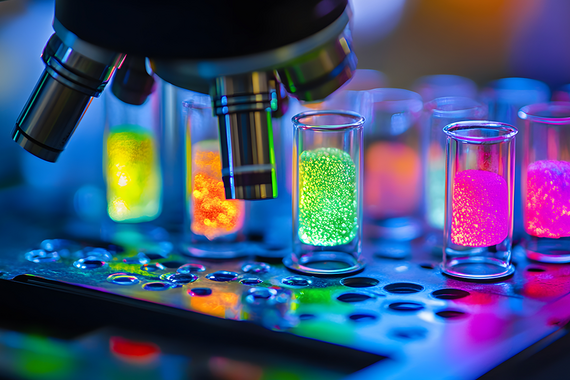-
The University
- Welcome
- Who we are
- Media & PR
- Studying
-
Research
- Profile
- Infrastructure
- Cooperations
- Services
-
Career
- Med Uni Graz as an Employer
- Educational Opportunities
- Work Environment
- Job openings
-
Diagnostics
- Patients
- Referring physicians
-
Health Topics
- Health Infrastructure
Research Team Malli
Research Focus: Biosensors for cell metabolism & signaling
PI: Roland Malli
Focus: At the Core Facility for Bioimaging (ZMF) at the Medical University of Graz, our interdisciplinary team combines expertise in molecular biology, cell biology, biochemistry, biophysics, and state-of-the-art imaging technology. Together, we develop highly specialized biosensors and customized live cell imaging pipelines to visualize complex cellular metabolic and signaling processes in tumor cells, neurons, and aging cells in real time.
Research focus:
- Metabolism & energy stress: We decode how cells adapt their energy balance in response to nutrient deficiency. Phase separation-based biosensors (SPARKs), novel split halo tag-based recorders, and classic biosensors allow us to resolve key metabolic pathways at the single-cell level using multiple parameters.
- Extracellular vesicles (EVs): Using next-generation fluorescence sensors, we map the formation, release, and uptake of these communication packets between cells.
- Subcellular ion homeostasis: Novel, genetically encoded sensors for K⁺, Ca²⁺, and Fe²⁺—including polycistronic constructs—show us how ion flows control signaling networks and modulate cell functions.
Network: Med Uni Graz: Wolfgang Graier (Mitochondrien‑Signalgebung & Biosensoren), Helmut Bischof (Biosensor‑Development & Krebsanalyse), Katharina Leithner (Tumorzellstoffwechsel), Andreas Prokesch & Jelen Kristic (Kalorische Restriktion & Metabolismus), Rainer Schindl & Amelie Weinberg (Mg‑Implantate & Zellstoffwechsel), Tobias Madl (Strukturanalysen zur Biosensoroptimierung), Pedro Sánchez Murcia (Molekulardynamik & Computational Design von Sensoren); International: Robert Lukowski (Universität Tübingen – Krebsstoffwechsel & Ionensignaling), Nikolaus Plesnila (LMU München – Neurowissenschaften), Oliver Greisbeck (Max‑Planck‑Institut München – Biosensorengineering), Emrah Eroglu (Medipol Istanbul – Biosensorentwicklung & Live‑Cell Imaging)


Methods & Technologies
- Biosensor design
- High-resolution fluorescence microscopy (widefield, confocal, super-resolution)
- Live cell imaging
- Multiparametric analyses

Translational perspectives
- Translational Bioimaging/Drug Screening: Development of new imaging pipelines with high-throughput tests based on our biosensors for identifying promising drug candidates.
- Metabolic Imaging: High-content analyses of individual cells allow conclusions to be drawn about dynamics in cell metabolism.



